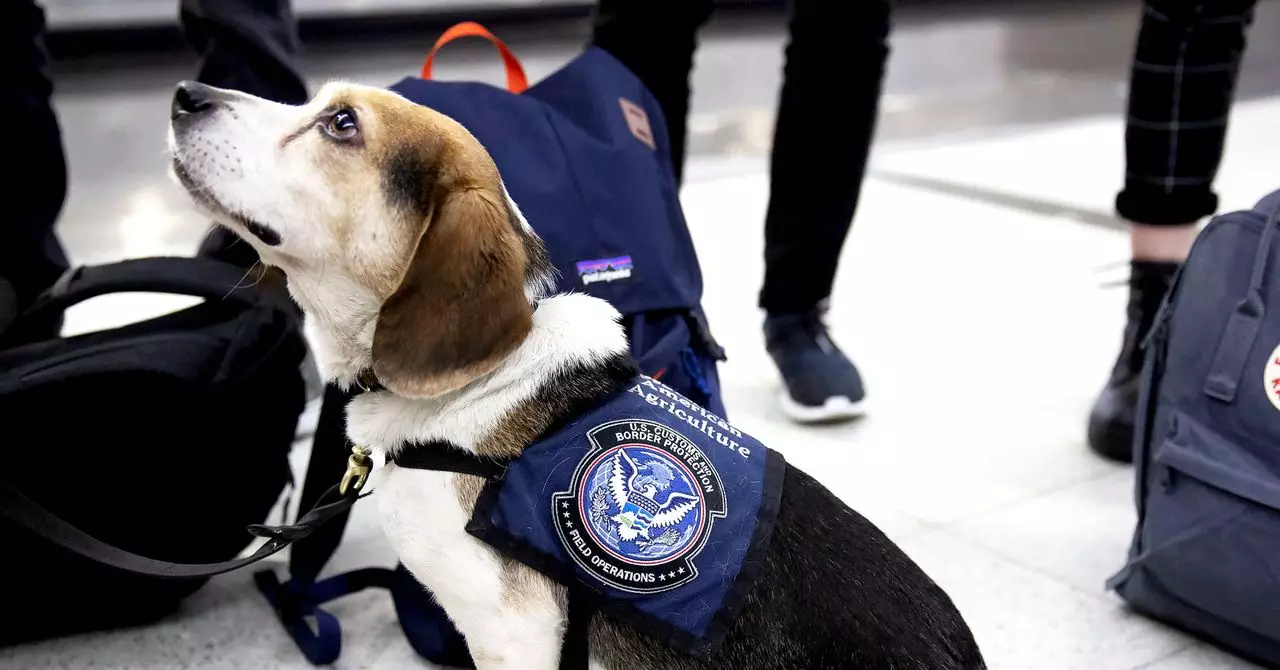In an alarming turn of events, the U.S. Department of Agriculture (USDA) appears to be facing a crisis that echoes far beyond bureaucratic mismanagement. The recent reduction of its workforce, which saw six thousand employees laid off, has left significant gaps in critical areas, particularly at the National Dog Detection Training Center. The abrupt dismissal of dedicated trainers like Derek Copeland is not merely a personnel issue; it reflects a cavalcade of potential agricultural disasters in waiting. Under the pretext of efficiency, an initiative backed by Trump administration policies and Elon Musk’s so-called Department of Government Efficiency (DOGE), the USDA has sacrificed skilled personnel who were vital in combating invasive species and ensuring the safety of the food supply chain.
Impacts on Invasive Species Detection
The loss of expert trainers has serious implications. The training and deployment of dogs adept at identifying invasive species such as the Giant African land snail—an organism with the potential to wreak havoc on Florida’s agricultural landscape—must not be underestimated. Copeland’s efforts in training detection dogs exemplify the nuanced skills necessary to protect domestic agriculture from foreign threats. There’s a chilling irony in the government’s neglect of these highly specialized roles at a time when the U.S. faces unprecedented challenges from invasive pests and diseases. Experts in regulation and entomology are no longer on the front lines, leaving an obvious gap that could spiral into larger, more unmanageable complications.
The Skeleton Crew Effect
As stated by insiders who chose to remain nameless out of fear of retaliation, the remaining workforce in the USDA operates under a “skeleton crew” system, struggling to fulfill essential duties. The seismic shifts in staffing—especially in the Plant Protection and Quarantine program—are alarming when considering the ramifications of having lesser experienced personnel in critical roles. Federal employees in this area often hold advanced degrees and specialized training, making their contributions irreplaceable by technology or temporary staff. This drastic change has left many experts questioning the logic behind prioritizing budget cuts over public safety and effective pest management.
Consequences for Food Supply Chains
Supply chain specialists like Mike Lahar are sounding the alarm. The reduction of highly trained inspectors and specialists could lead to grave consequences, affecting both food safety and pricing. With supply chains already strained by various external pressures—ranging from avian flu outbreaks to rising tariffs—the risk of deteriorating food products in transit becomes a pressing concern. If fewer inspections lead to more undetected issues, we might witness not only food waste but also a spike in grocery prices. This economic ripple effect could be felt most acutely by vulnerable populations who rely heavily on affordable food options.
Regional Disparities in Impact
Geographically, coastal states with major shipping ports are feeling the brunt of the USDA cuts more severely. Notably, places like the Port of Los Angeles and Port of Miami are critical junctures for plant imports, yet they have seen staggering reductions in their inspection staff. Estimates suggest a 35% reduction of Plant Protection and Quarantine employees at Los Angeles, alongside an alarming 60% decrease in those tackling illegal pest smuggling. These regions cannot afford such drastic staff reductions, as the stakes are exceptionally high; invasive species introduction can lead to irreversible ecological damages.
The Bigger Picture: A Call to Action
The USDA cuts raise pressing questions about the future of U.S. agriculture and food safety. When government efficiency becomes a euphemism for a lack of foresight and poor prioritization, the public must take heed. Awareness is the first step, but it should be followed by demands for reinstating those essential roles that buoy American agriculture. The inability to effectively address invasive species is not just a matter of policy; it’s a question of national security and economic sustainability. Society must hold leaders accountable for policies that risk compromising our food supply, and demand immediate action to restore the integrity and skill sets that once defined the USDA.

